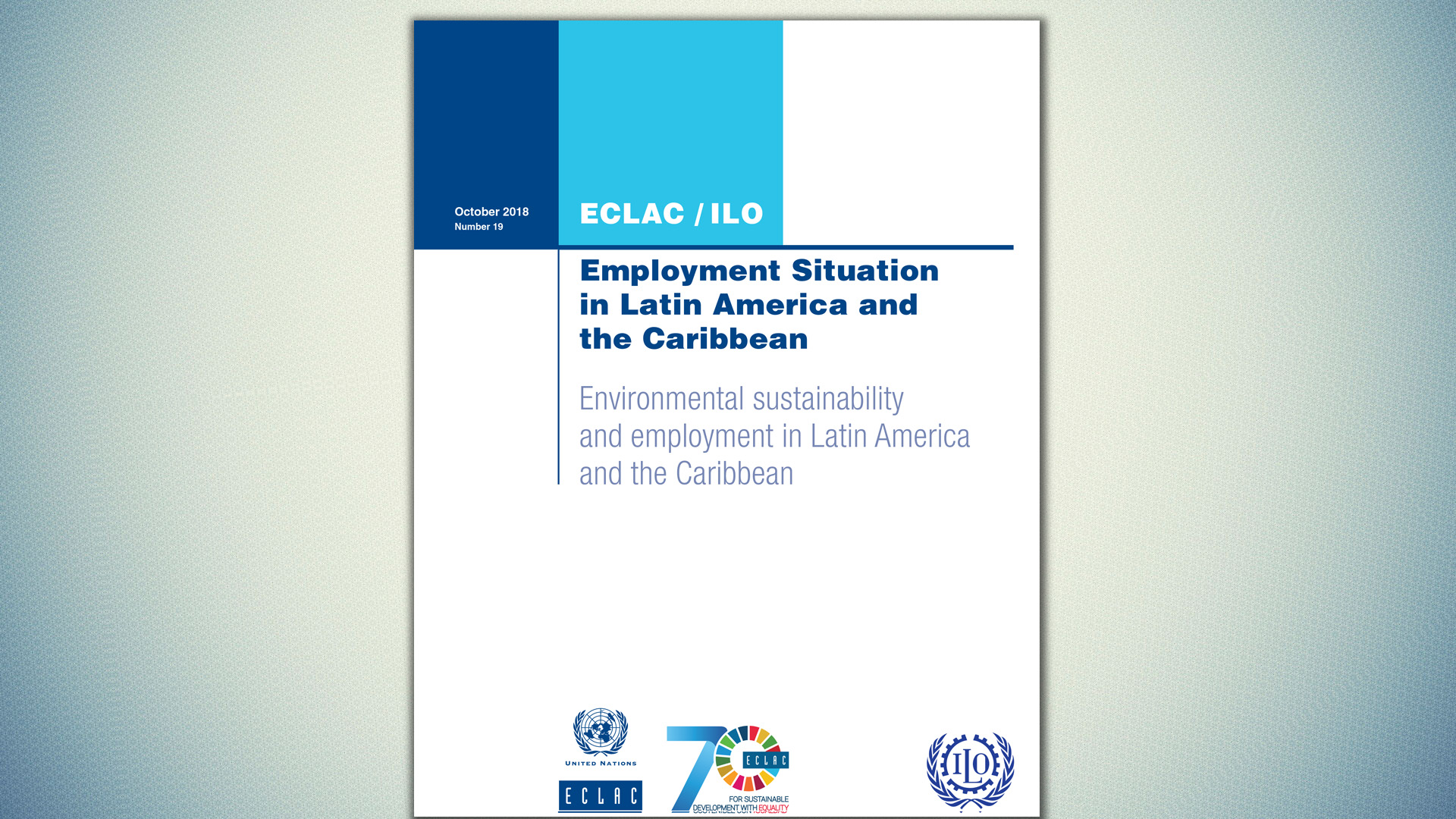ECLAC and ILO Stress Importance of Moving Toward a More Sustainable Development Model to Create New Job Opportunities
Work area(s)
In a joint publication, the organizations forecast, for example, that the transition toward energy sustainability would create more than one million jobs in Latin America and the Caribbean by 2030.

Latin America and the Caribbean is the most biodiverse region in the world, but it is losing its natural wealth due to the environmental harm being caused by the current development pattern. That is why there is a pressing need to transition toward a more sustainable model, both from an environmental and labor point of view, which would enable access to new opportunities and improvements in employment, ECLAC and the ILO indicate in a new joint publication.
In the 19th edition of Employment situation in Latin America and the Caribbean (October 2018), the Economic Commission for Latin America and the Caribbean (ECLAC) and the International Labour Organization (ILO) address how urgently needed environmental sustainability – especially the decarbonization of the energy sector and the circular economy – can affect the world of work, and the challenges posed by this situation.
For example, the United Nations organizations project that the transition toward energy sustainability would create more than one million jobs in Latin America and the Caribbean by 2030. Similarly, the evolution toward a circular economy – in which the efficiency and lifespan of materials improve upon promoting durability and repairability, remanufacturing, reuse and recycling – would create 4.8 million net jobs by 2030, since job creation in those sectors reprocessing wood, steel, aluminum and other metals will easily compensate for the losses associated with the extraction of minerals and other materials.
However, environmental transitions also entail challenges for the world of work and the need to develop suitable skills among the labor force, ECLAC and the ILO warn.
“To achieve a transition with the capacity to create decent employment and which is fair for everyone, the complementarity of policies is key. Policies that aim for environmental sustainability must be accompanied by integrated legal frameworks and policies for social protection, skills development and gender equality, which promote social dialogue,” Alicia Bárcena, ECLAC’s Executive Secretary, and José Manuel Salazar, the ILO’s Regional Director for Latin America and the Caribbean, stated in the document’s foreword.
The report explains that some regulations, legal frameworks and policies already exist, both at an international and national level, for fueling an environmental transition that optimizes the creation of employment and decent work. For example, some multilateral environmental agreements directly refer to international labor laws and regulations, such as the United Nations Convention on the Law of the Sea (1982), the International Tropical Timber Agreement (2006) and the Hong Kong International Convention for the Safe and Environmentally Sound Recycling of Ships (2009). The Paris Agreement, of the United Nations Framework Convention on Climate Change (2015), also includes key aspects from the world of work.
On a national level, based on a sample of seven countries from Latin America and the Caribbean, in six of them, the legal frameworks for the energy sector make explicit mention of skills development and research and development. In five of them, general reference is made to the world of work, and in four cases to job creation. However, in none of these countries is social dialogue mentioned, which is a mechanism for moving toward a just transition, ECLAC and the ILO indicate.
With regard to the current context, the document notes that after seven semesters of interannual increases in the open urban unemployment rate in Latin America and the Caribbean, in the first half of 2018 a reduction was seen for the first time, albeit a very small one of 0.1 percentage point. This is partially due to the fact that, since the third quarter of 2017, the urban employment rate has registered interannual increases of 0.2 percentage points, which had an impact on the unemployment rate in early 2018 upon coinciding with a slight deceleration in the growth of the labor force participation rate, which continues to be fueled by women’s increasing labor insertion.
According to both organizations, the unemployment rate lies above the projections that were made in late 2017 because the region’s economic growth was less vigorous than expected (the projection for 2018 fell from 2.2% at the end of 2017 to 1.3% in October of the current year). In this new scenario, it is expected that the average urban unemployment rate for 2018 will show little change from 2017, registering around 9.3% again.
In this context, labor market and social protection policies will continue to be crucial for protecting the well-being of the population, ECLAC and the ILO stress.
For queries or to request interviews, contact:
- Sonia Alvarez. ILO’s Press Officer in Santiago. Email: alvarezsv@ilo.org.
- ECLAC’s Public Information Unit. Email: prensa@cepal.org. Telephone: (56) 22210 2040.
Related content
Country(ies)
- Latin America and the Caribbean
Contact
Public Information Unit
- prensa@cepal.org
- (56 2) 2210 2040